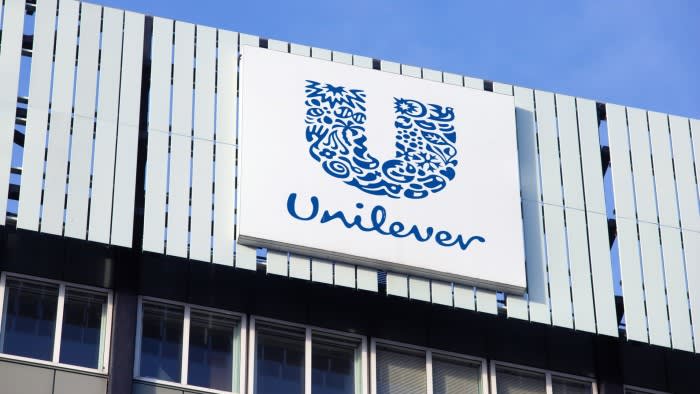Unlock the Editor’s Digest for free
Roula Khalaf, Editor of the FT, selects her favourite stories in this weekly newsletter.
Unilever has sold its Russian business for €520mn following approval by authorities in Moscow to a local manufacturer known for snapping up western assets following a corporate exodus from the country.
London-listed Unilever confirmed on Thursday that it had reached an agreement to sell assets worth approximately €600mn to Russian manufacturer Arnest, including its business in Belarus. People close to the deal confirmed the amount.
“Over the past year, we have been carefully preparing the Unilever Russia business for a potential sale,” said chief executive Hein Schumacher. “This work has been very complex, and has involved separating IT platforms and supply chains, as well as migrating brands to Cyrillic.”
“The completion of the sale ends Unilever Russia’s presence in the country,” he added.
Since Moscow’s full-scale invasion of Ukraine resulted in a wave of corporate exits from Russia, Arnest, which is owned by Russian industrialist Alexei Sagal, has acquired the local assets of US can maker Ball Corp, Dutch brewer Heineken and Swedish cosmetics group Oriflame.
The deals have made Sagal one of the key beneficiaries of the largest redistribution of assets in Russia since the fall of the USSR, more than doubling Arnest’s income from sales to Rbs13.9bn ($143mn) last year, while basic profit has soared about 24 times.
Sagal has often acquired the assets at steep discounts. Heineken sold its business to Arnest for a symbolic €1, and at a loss of €300mn for the brewer.
Unilever’s Russian operations included four factories and accounted for approximately 1 per cent of the group’s turnover and net profit in 2023.
The consumer goods group had come under intense criticism from activists and consumers for remaining in Russia while others left on moral grounds following the invasion of Ukraine in 2022.
The FTSE 100 company was labelled as an “international sponsor of war” by the Ukrainian government, which published a list of companies it concluded were indirectly contributing to the war.
Unilever had previously given no indication it planned to exit the market. In February the company said it reviewed its position and concluded that “the containment actions we put in place at the beginning of the war minimise our economic contribution to the Russian state”.
Companies attempting to exit Russia have struggled to extract value from deals. The Kremlin imposes a mandatory 50 per cent discount on assets from “unfriendly” countries sold to Russian businesses and a minimum 15 per cent “exit tax”.
It is also increasingly difficult to find local buyers acceptable both to the western seller and to Russian authorities, and whose involvement does not fall foul of western sanctions.


